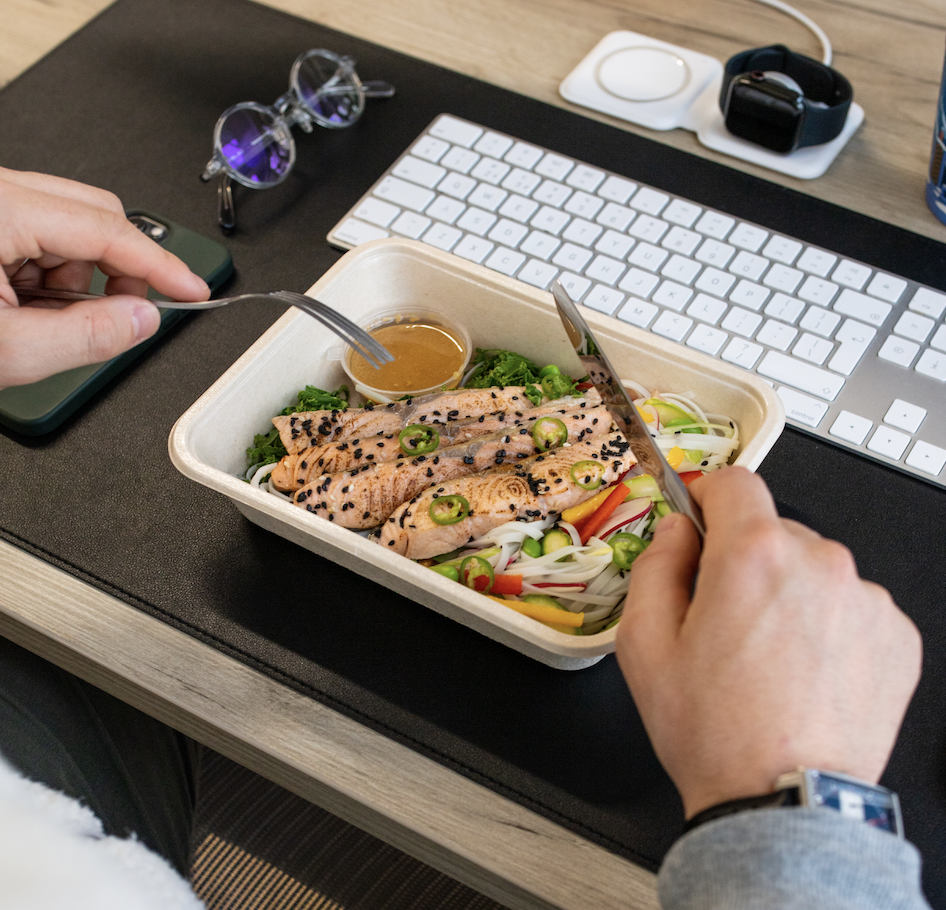

We all know that familiar feeling as the afternoon rolls in and we begin to feel drained of energy and desperate for a nap. There is nothing more frustrating than when you still have a long list of tasks to complete and a day of work ahead.
According to the National Sleep Foundation, it’s our circadian rhythm, otherwise known as our sleep/wake cycle, which causes this feeling of drowsiness. Most of us experience the biggest energy dip between 2:00-4:00 am (when we’re usually sleeping) and a second one post-lunch, between 13:00 and 15:00 pm.
The afternoon energy dip is related to our core body temperature. Our internal body temperature drops and our brain reads this signal and releases melatonin. Melatonin is a hormone that regulates our sleep and wakefulness.
Another important factor causing reduced energy levels is our diet. After a meal is consumed our blood glucose levels will rise and the pancreas starts producing and releasing insulin into the bloodstream. Insulin will take glucose out of the bloodstream and will promote the absorption of glucose by the liver, fat cells and muscle cells. The amount of glucose in our bloodstream will therefore drop quite suddenly, and this is the reason we can feel tired post-lunch. It’s common to refer to this as a ‘sugar-low’.
Here are some tips to fight the slump and help keep you focussed throughout the day:
1. Eat a healthy lunch
Take a light meal over lunchtime packing in high-quality protein, plenty of veg and a good serving of whole grains. A well-balanced lunch will help to prevent a spike in blood sugar levels and will keep your energy levels sustained throughout the day. Keep foods high in fat and refined sugar to a minimum. Fats will slow down your digestion and can make you feel tired. Foods high in sugar will cause your blood sugar levels to spike, leading to a ‘sugar crash’ which in turn will make you feel even more drowsy.
2. Step back from your screen and move around
Try to get away from your desk at lunchtime and take a break from work. Use the hour as a time to both eat and be physically active for a couple of minutes, even if it’s just a walk around the block. This will help to boost your blood circulation and refresh your focus.
3. Snack smart
To prevent feeling peckish and grabbing the nearest sugary sweets, keep some healthy snacks to hand. Sugary snacks may give you a short-term energy boost, but often you will be left feeling less energised than before. Opt for snacks that will keep your blood sugar stable like fruit, veggies or nuts.
4. Stay hydrated
Make sure you drink plenty of water throughout the day to keep you hydrated. Dehydration has a direct impact on our brain functioning and can make us feel mentally sluggish. A cup of coffee or tea can help you to stay alert, however try to minimise your caffeine consumption during the afternoon so it doesn’t later affect your sleep.
5. Get enough sleep
Having regular sleeping habits, like going to bed at night and waking up in the morning around the same time every day improves your circadian rhythm. Schedule your work activities around your natural sleep/wake cycles and prioritise the most demanding work early in the day.
———————————————-
If you would like to discuss your current goals and discuss if your nutrition could be tailored to support it, please contact [email protected] or book in for a call here to speak to a Nutritionist.
Alternatively, if you have all the information you need but just don’t want to cook? Give one of our plans a go with £50 off your 5-day trial with code BLOG50 – Start your trial here.